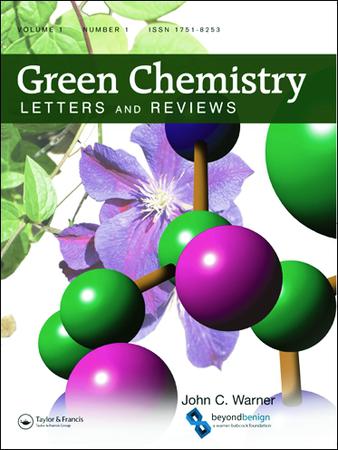A comprehensive review of sustainable approaches for synthetic lubricant components
IF 5.8
3区 化学
Q1 CHEMISTRY, MULTIDISCIPLINARY
引用次数: 4
Abstract
ABSTRACT In the last few years, there is a general shift observable toward greener lubrication, fueled amongst others by policy initiatives such as the European Green Deal in consistency with the UN Sustainable Development Goals. At least 70 vol% of a lubricant is composed of a specific base oil, the rest is a variation of additives altering the lubricant properties (enhancing or suppressing existent base oil properties or adding new properties) to be operational for a particular field of application. So, in terms of sustainability, biodegradability, bioaccumulation, and toxicity the type of base oil plays a major role, which makes environmentally harmful petroleum-based lubricant formulations highly problematic for future applications. Hence, this leads to an ever-growing demand of environmentally friendly lubricant alternatives. Within the scope of this review lies the investigation of bio-based, bio-derived, and other sustainable lubricant components that could serve as promising replacements for conventional petroleum-based formulations, in accordance with the principles of green chemistry and tribology. As recycling is embraced by the term sustainability, waste-derived components of non-biological origin are also included in this work. An overview of studies on the tribological performance such as friction and wear properties of these sustainable and benign lubricant components is given. GRAPHICAL ABSTRACT Sustainable lubricant components in a circular approach.合成润滑油成分可持续发展途径的综合综述
本文章由计算机程序翻译,如有差异,请以英文原文为准。
求助全文
约1分钟内获得全文
求助全文
来源期刊

Green Chemistry Letters and Reviews
CHEMISTRY, MULTIDISCIPLINARY-GREEN & SUSTAINABLE SCIENCE & TECHNOLOGY
CiteScore
9.10
自引率
3.00%
发文量
48
期刊介绍:
Green Chemistry Letters and Reviews is an Open Access, peer-reviewed journal focused on rapid publication of innovative new syntheses and procedures that reduce or eliminate the use and generation of hazardous materials. Reviews of state-of-the-art green chemistry technologies are also included within the journal''s scope.
Green Chemistry Letters and Reviews is divided into three overlapping topic areas: research, education, and industrial implementation. The journal publishes both letters, which concisely communicate the most time-sensitive results, and reviews, which aid researchers in understanding the state of science on important green chemistry topics. Submissions are encouraged which apply the 12 principles of green chemistry to:
-Green Chemistry Education-
Synthetic Reaction Pathways-
Research and Process Analytical Techniques-
Separation and Purification Technologies-
Renewable Feedstocks-
Degradable Products
 求助内容:
求助内容: 应助结果提醒方式:
应助结果提醒方式:


